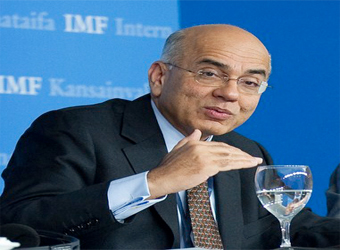The International Monetary Fund commended Egypt’s plan to boost public spending by $3 billion to create jobs and stimulate economic growth as political unrest keeps private investment subdued.
“We do think it’s a good idea,” Masood Ahmed, head of the Middle East and Central Asia department at the IMF, said in a briefing today in Washington.
The stimulus is financed by aid from Saudi Arabia, the United Arab Emirates and Kuwait, which have pledged $12 billion to Egypt since the military toppled Islamist President Mohamed Mursi in July. The Gulf money offers Egypt a “window” to carry out reforms that would direct more spending toward capital investment, Ahmed said.
The flow of aid led Egypt to halt plans to seek a $4.8 billion loan from the IMF, an agreement it had struggled to secure for more than two years following the ouster of President Hosni Mubarak in a 2011 uprising.
Egypt’s economy will grow 2.9 percent in 2014, according to the median estimate of 16 economists surveyed by Bloomberg, from about 2.2 percent in the fiscal year that ended in June. That’s still below the government’s target of 3.5 percent, and the 5 percent average during Mubarak’s last decade in power.
The military-backed interim government is seeking to cap spending on fuel subsidies, distributing them through smart cards to prevent abuses. Egypt’s subsidy bill surged to 120 billion pounds ($17.4 billion) in the last fiscal year, from 40 billion pounds in 2006.
Source: Bloomberg
